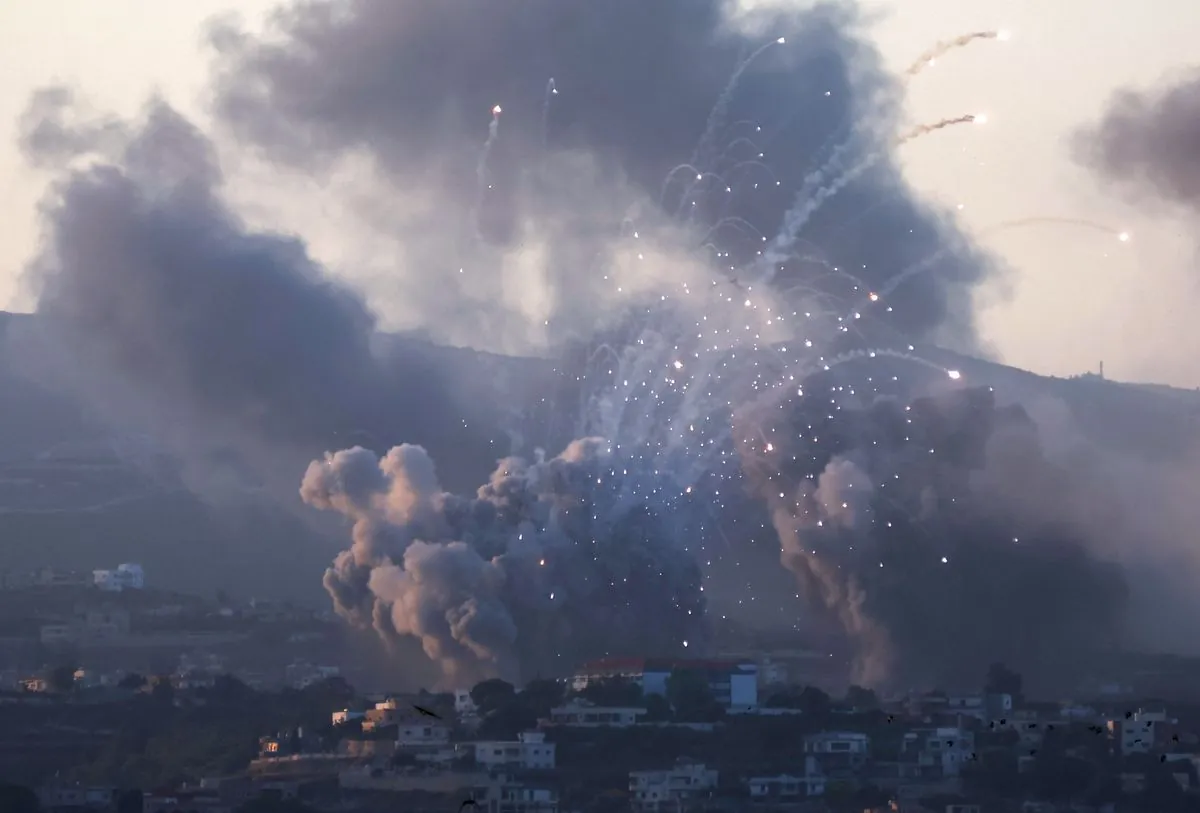In a significant escalation of the ongoing conflict, the Israeli military has conducted extensive strikes against Hezbollah targets across Lebanon, marking the most geographically widespread bombing campaign since hostilities began approximately one year ago. The Israeli Defense Forces (IDF) have suggested that a ground incursion may be necessary to achieve their war objectives.
The conflict, which has been running parallel to the war in Gaza, has seen a sharp increase in cross-border exchanges over the past week. Hezbollah, founded in 1982 during the Lebanese Civil War, has vowed to continue fighting until a ceasefire is reached in Gaza, setting the stage for a potentially prolonged engagement.
Israeli military spokesperson Daniel Hagari urged residents of southern Lebanon to avoid Hezbollah positions, indicating that Israel had initiated strikes after identifying potential threats. When questioned about the possibility of a ground incursion into Lebanon, Hagari stated that Israel would "do whatever is needed" to ensure the safe return of evacuated northern Israeli residents, a key priority for the government.
The recent escalation has seen Israeli warplanes conducting intense air strikes on towns along Lebanon's southern border and further north. Witnesses reported low-flying aircraft and numerous air strikes near the southern port city of Tyre. Hezbollah's al-Manar television reported Israeli airstrikes targeting various towns and villages in the south, as well as the Bekaa Valley in eastern Lebanon and the Hermel area in northern Lebanon.
Hezbollah, which operates a vast social services network in Lebanon and holds seats in the parliament, has been exchanging heavy fire with Israel. The group's deputy chief, Naim Qassem, declared at a funeral for a commander killed last week in Beirut that they had "entered a new phase" of "open-ended battle of reckoning."
Israeli Defence Minister Yoav Gallant stated that operations would continue until it was safe for evacuated residents to return to their homes on the Israeli side of the border. This stance aligns with Hezbollah's commitment to fight on until a ceasefire in Gaza, indicating a potential long-term conflict.
"We have entered a new phase, the title of which is the open-ended battle of reckoning."
It's worth noting that Hezbollah receives substantial support from Iran, including financial and military assistance. The group's military wing is estimated to have tens of thousands of fighters, and its rocket arsenal is believed to be larger than that of many nation-states. This military capability has been a significant factor in the ongoing conflict with Israel.
The recent escalation follows an incident where thousands of pagers and walkie-talkies used by Hezbollah members exploded on September 17-18, 2024. While Israel has neither confirmed nor denied responsibility, the attack was widely attributed to them, showcasing the complex nature of the conflict and the various tactics employed.
As the situation continues to evolve, the international community watches closely, aware of Hezbollah's designation as a terrorist organization by several countries and its involvement in previous conflicts with Israel, including the 2006 Lebanon War. The group's sophisticated cyber warfare capabilities and its influence extending beyond Lebanon's borders add further complexity to the ongoing crisis.
